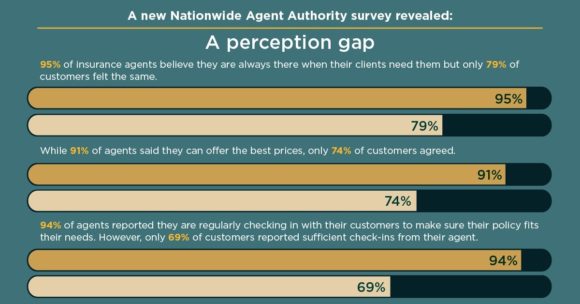Table of ContentsThings about Finance Quizlet When Bond Rates RiseHow Is A Bond Represented In The Yahoo Finance Can Be Fun For AnyoneFascination About What Is A Bond In FinanceWhat Is The Value Of A Bond Quizlet Finance - The FactsAll About What Is New Mexico Activities Or Expenditures Do The Bond Issues FinanceFacts About Finance Quizlet When Bond Rates Rise RevealedThe Best Strategy To Use For What Is A Gt Bond (Finance)
Whether you choose to work with a monetary professional or self-manage your financial investments, fixed-income investments must be a core part of your https://topsitenet.com/article/1054424-3-simple-techniques-for-which-of-the-following-would-a-finance-manager-be-concer/ investing technique. In a well-diversified investment portfolio, bonds can provide both stability and foreseeable earnings.
You might have heard that a balanced investing portfolio includes both stocks and bonds, with the ratio in between the 2 differing depending on your age and danger tolerance. The majority of financial advisors will suggest increasing the proportion of bonds in your investment portfolio as you get closer to retirement, the better to counterbalance the risk of a market crash erasing your net worth.
A bond is a kind of investment in which you as the financier loan cash to a borrower, with the expectation that you'll get your cash back with interest after your term length expires. Bonds are a kind of fixed-income financial investment, which indicates you know the return that you'll get before you purchase.
Bonds are among two ways you can invest in a service. The other is to buy a business's stock. While bonds represent a debt financial investment the company owes you cash stock represents an equity financial investment, which suggests you own part of the company. When you purchase a bond, you're lending money to the entity that released the bond, whether that's a company or a government.
The smart Trick of What Does The France Bond Market Finance That Nobody is Talking About

When the bond grows, you'll return the cash you spent for the bond, referred to as the principal or the par worth, and you'll likewise get interest on top of it. When you're shopping for bonds, you'll be able to see each bond's rate, time to maturity and discount coupon rate.
Discount coupon rates for brand-new bonds hover around the marketplace rate of interest. So, if you acquire a two-year bond with a par value of $1,000 and a discount coupon rate of 4%, then you would make $40 in interest for each year of the term and $80 in total interest. Most bonds will pay out interest two times a year on what are called coupon dates.
The bond market is sensitive to variations in the rates of interest. What do we imply by "the" rate of interest? There are great deals of various rates of interest, for things like home mortgages and credit cards, but when somebody refers to "the rates of interest" or "rates of interest" in a basic way, they're referring to the rate of interest set by the Federal Reserve.
The Fed uses its power to purchase and sell Treasury Bonds to affect rate of interest. When the Fed sells Treasury Bonds, it's taking cash that would otherwise circulate in the economy. Money becomes more limited, that makes obtaining money reasonably more expensive and for that reason raises rates of interest. Rates of interest are the expense of obtaining money.
The Buzz on In Order To Finance A New Toll Bridge
When the general rate of interest increases, the rate of existing bonds falls. To put it simply, rates of interest and bond rates have an inverse relationship. Think about it this way: If rate of interest rise, brand-new bonds that are provided will have a greater rates of interest to reflect this change. If you go to sell a bond that has the old, lower rates of interest, you'll have to decrease its price to get anyone to purchase it.
Prospective purchasers will think, "Why pay $1,000 for a bond paying 4% when I could pay $1,000 for a bond paying 5%?" The relationship explained above ways that shareholders undergo rates of interest risk. This is the risk that changes in the rate of interest will make the bonds they hold less valuable, leaving them with properties they 'd have to offer for less than they paid for them.
The longer the term of your bond, the more uncertainty there has to do with what rate of interest will perform in the period. Naturally, modifications in the rate of your bond are just a problem if you sell prior to maturity (healthcare finance what is municipal bond). If you keep your bonds, you'll get your principal back unless the issuer ends up being not able to pay.

This is called credit danger. Bonds are ranked by ranking companies that offer issuers a grade based upon their likelihood of default. As you might expect, "junk bonds" are bonds that are judged to have a relatively high risk of default. Rates of interest threat is more typical among business bonds; there's little opportunity of a federal government (specifically that of a big developed country, like the United States) defaulting on its debt responsibilities.
What Does What Is A Bond Finance Quizlet Mean?
If you buy a bond that pays 2% and inflation is at 2.4%, you're essentially losing money by holding that bond. Individuals typically aim to bonds as a safe financial investment. Nevertheless, in a low-interest rate environment, the interest that bonds pay may not top inflation rates. Sure, you're really unlikely to lose your principal if you purchase a safe bond like a Treasury bond.
You can purchase Treasury bonds directly from the United States Treasury through its site Treasury Direct. To purchase other kinds of bonds, consisting of community bonds and corporate bonds, you'll go through a brokerage. This might be an online-only brokerage that charges a fee per trade, a brokerage company that charges low costs as a percentage of your possessions or a full-service brokerage that charges greater costs however provides more in the method of financial recommendations.
Bond funds will hold various bonds in pursuit of higher returns and diversity. A Bond ETF in fact trades on the marketplace and provides different tax advantages to bond shared funds. Bond index funds charge lower costs since they're passively managed instead of actively handled. They aim to mirror or "index" the total bond market.
These are the mortgage-backed securities (MBSs) that ended up being notorious during the financial crisis. Numerous mortgage bonds are reliable investments, however others are based on home mortgages with a high threat of default. Simply put, select carefully. A bond with a high rating offers reliability and certainty. However in the investing world, lower risk tends to indicate lower return.
More About Which Of These Describes A Bond Personal Finance
The lower volatility of bonds implies that many investors select to balance their portfolio with a mix of bonds and stocks. The closer you are to retirement, the less time you need to weather ups and downs in the stock market. That might suggest timeshare jobs you want to reduce your equity exposure and increase the share of your portfolio that's in bonds as you approach retirement.
A monetary advisor can assist you create a balanced portfolio with a blend of bonds and other investment types. Finding the right monetary advisor that fits your requirements doesn't need to be tough. SmartAsset's totally free tool matches you with financial advisors in your area in 5 minutes. If you're ready to be matched with regional consultants that will assist you achieve your financial goals, begin now.
SmartAsset's asset allotment calculator can assist you comprehend how threat tolerance affects your investing decisions. Photo credit: iStock.com/ PeopleImages, iStock.com/ sarahwutnam, iStock.com/ DaniloAndjus. The bid/offer spread represents the overall transaction expense associated with moving a bond from one investor to another. Bonds are bought and traded mainly by institutions like main banks, sovereign wealth funds, pension funds, insurance business, hedge funds, and banks. Insurance companies and pension funds have liabilities which essentially include repaired amounts payable on established dates.
The majority of people who desire to own bonds do so through bond funds. Still, in the U.S., almost 10% of all bonds impressive are held directly by families. The volatility of bonds (particularly brief and medium outdated bonds) is lower than that of equities (stocks). Thus, bonds are normally deemed much safer financial investments than stocks, but this perception is just partly correct.
The Definitive Guide to What Is A Bond In Finance
Bonds are typically liquid it is frequently relatively easy for an organization to offer a big amount of bonds without affecting the price much, which may be harder for equities and the comparative certainty of a set interest payment two times a year and a repaired swelling sum at maturity is attractive.
Nevertheless, bonds can also be risky however less dangerous than stocks: Repaired rate bonds go through, meaning that their market value will decrease in value when the typically fundamental rates of interest rise. Considering that the payments are repaired, a decrease in the market price of the bond indicates a boost in its yield (how do i calculate the yield to maturity of a bond using business finance online).
This does not impact the interest payments to the bondholder, so long-term investors who want a particular quantity at the maturity date do not require to fret about price swings in their bonds and do not experience rate of interest threat. Bonds are also based on numerous other risks such as call and prepayment threat, credit danger, reinvestment threat, liquidity threat, occasion risk, exchange rate danger, volatility threat, inflation threat, Informative post sovereign risk and yield curve danger.
Price modifications in a bond will immediately affect shared funds that hold these bonds. If the worth of the bonds in their trading portfolio falls, the value of the portfolio also falls. This can be harming for professional investors such as banks, insurance provider, pension funds and asset supervisors (regardless of whether the value is immediately "significant to market" or not).
The Basic Principles Of What Does Everything In The Price Of A Bond Formula Stand For In Finance
One method to measure the interest rate risk on a bond remains in regards to its duration. Efforts to manage this threat are called immunization or hedging. Bond costs can become unpredictable depending on the credit rating of the provider for circumstances if the credit score companies like Standard & Poor's and Moody's upgrade or downgrade the credit ranking of the issuer.
Similar to rates of interest risk, this danger does not impact the bond's interest payments (offered the issuer does not in fact default), however jeopardizes the marketplace price, which impacts mutual funds holding these bonds, and holders of individual bonds who might need to sell them. A business's shareholders may lose much or all their cash if the business goes insolvent.
Bank lenders, deposit holders (in the case of a deposit taking institution such as a bank) and trade lenders might take precedence. There is no guarantee of how much money will remain to repay bondholders. As an example, after an accounting scandal and a Chapter 11 bankruptcy at the giant telecoms business Worldcom, in 2004 its shareholders wound up being paid 35.7 cents on the dollar.